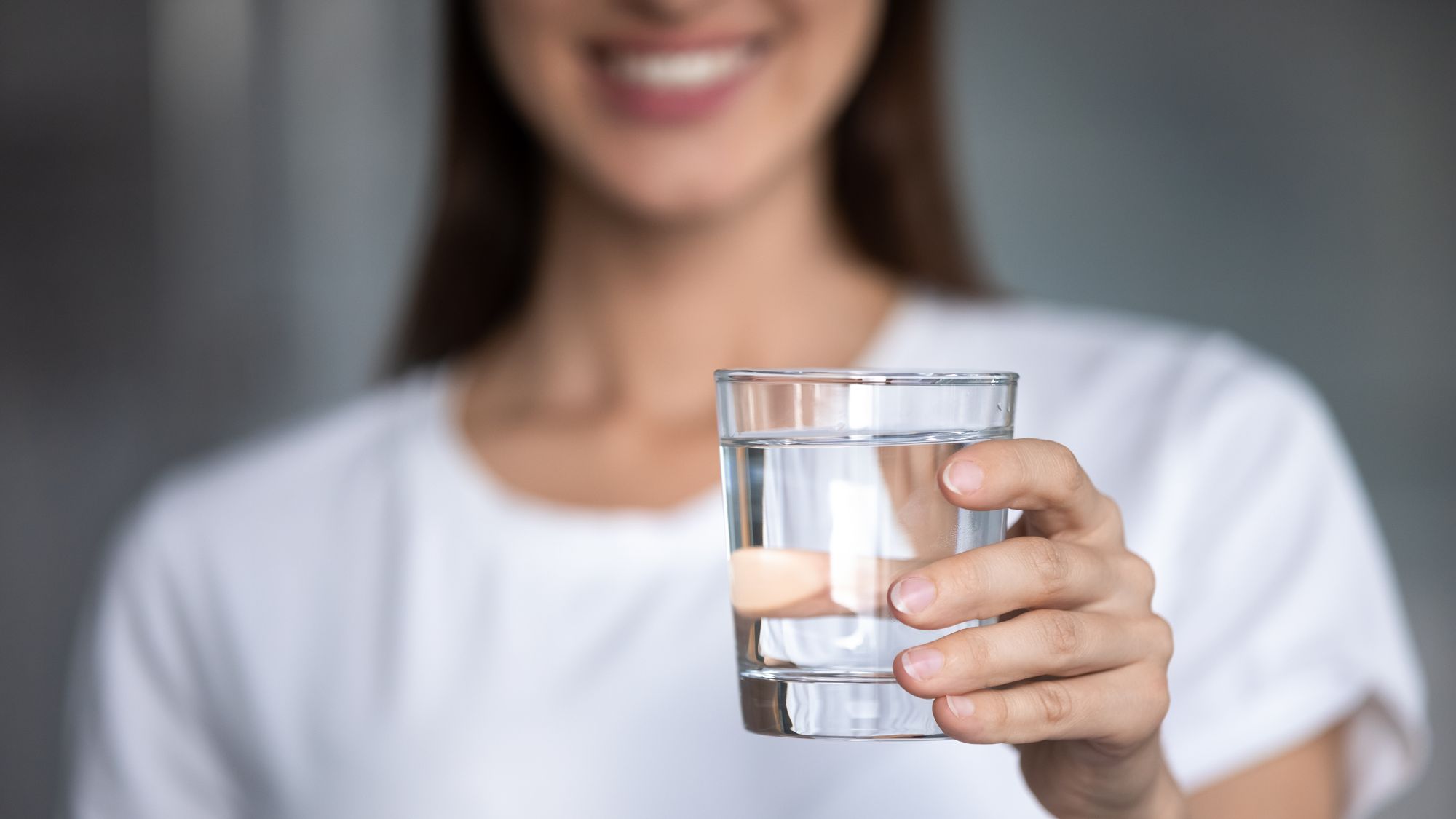Staying hydrated is essential for maintaining good health and ensuring your body functions properly. Whether you're an active person, live in a dry or humid area, or have experienced a few too many hangovers, you've likely faced dehydration at some point. And, as we all know, dehydration can come with some uncomfortable symptoms like nausea, headaches, lightheadedness, fatigue, and dry mouth. To avoid these unpleasant effects, it's important to drink water throughout the day. But, is it possible to drink too much water? What would happen if you drank a gallon of water every day?
It turns out that drinking too much water can actually be harmful to your health. Consuming too much water can lead to a condition called hyponatremia, which is a dangerously low level of sodium in the blood. Symptoms of hyponatremia can include headache, nausea, vomiting, seizures, and even coma or death in severe cases.
So, how much water should you drink daily? The general rule of thumb is to drink at least eight cups of water per day, but this can vary depending on factors like age, weight, activity level, and climate. It's important to pay attention to your body's signals and drink water when you're thirsty. And, if you're engaging in strenuous physical activity or sweating profusely, you may need to drink more water to replenish what you've lost.
In conclusion, drinking water is important for your health, but it's possible to drink too much. Drinking a gallon of water every day may lead to serious health problems, so it's best to stick to the recommended daily intake and listen to your body's signals.
1) You May Lose Weight

Drinking a gallon of water each day may reduce your appetite, causing you to consume fewer calories and, in turn, promote weight loss. According to the Nutrition Twins, once you start drinking at least a gallon of water daily, you may realize that your appetite isn't as strong as it once was. This is because sometimes our brains can cross signals in a way that causes us to mistake thirst for hunger. When your body is inadequately hydrated, it's possible that your go-to instinct to satisfy this craving might be to eat more food instead of opting for the H2O your body actually seeks.
Conversely, guzzling a gallon of water each day can help repress your urge to overeat and manage your cravings, enabling you to react accordingly when you genuinely feel thirsty versus hungry. This can then, in turn, result in weight loss. "When you drink more and are properly hydrated, that hunger no longer exists, and you can shed pounds as you stop consuming extra calories that were a result of dehydration," says the Nutrition Twins.
2) You May Lose Touch with Hunger and Satiety

Drinking a gallon of water daily can potentially confuse your body's signals, leading to difficulty determining when you're genuinely full or hungry. According to the Nutrition Twins, regularly drinking a gallon of water a day might also potentially blur your organic body cues and intuition when it comes to experiencing a genuine sense of fullness, even after eating a reasonably portioned meal.
"While drinking plenty of water can help you to prevent mistaking thirst for hunger," the Nutrition Twins warn, "if you're drinking a lot of water in an attempt to squash hunger for weight loss, and you're constantly causing your stomach to feel distended, you may stretch your stomach and adjust to this feeling – and it will require more food to feel full." In other words, drinking a gallon of water a day does not give you the license to go overboard with your other healthy dietary habits. Maintaining a healthy awareness of your eating habits relative to your new drinking routine will be beneficial to your overall health.
3) You May Spend a Lot of Time Running to the Bathroom
Drinking a gallon of water each day could lead to more frequent urination. While this daily consumption may help mitigate constipation, it is essential to note that not everyone's body can handle this much water intake. "When you drink too much, it can't all just stay in your body – it has to make its way out. So, frequent bathroom trips are to be expected," say the Nutrition Twins. Therefore, it is necessary to be mindful of when and where you decide to drink water and avoid overdoing it beyond the recommended quantities. Besides, do you really want to keep waking up in the middle of the night to scoot to the loo, or be that person on road trips who must stop every few minutes to find a bathroom?
4) You May Become More Regular and Less Bloated

Drinking a gallon of water every day can help prevent constipation, relieve bloating, and make it easier to pass stool. According to the Nutrition Twins, many people struggle with constipation and the bloat that comes with it simply because they don't drink enough water. So their stool ends up being hard and difficult to pass. If you aren't getting enough water and increase your consumption as you strive to drink a gallon of water, you'll help to make the stool softer and easier to pass. And as you become more regular, the bloat that came with constipation will be relieved too.
5) You May Look Younger

Drinking water can help hydrate the skin and prevent it from looking dehydrated, sunken, and weathered. According to the Nutrition Twins, water carries nutrients to the skin and fills the spaces between cells, making the cells plumper, resulting in youthful-looking skin.
6) You May Have More Energy

Drinking a gallon of water daily can keep you refueled and recharged throughout the day. Water carries nutrients and oxygen throughout the body to the brain and to working muscles. If you're even slightly dehydrated, you feel tired because oxygen flow to the brain is impaired. Research has found that just 1.6% of dehydration causes fatigue, considered mild dehydration, which is 1–3% of body weight or 1.5–4.5 pounds in a 150-pound person.
7) You May Have More Difficulty Digesting Your Food
Drinking large amounts of water with meals is not recommended as it dilutes digestive enzymes, leading to difficulty digesting food, particularly for those with digestive issues.
8) You May Experience Nausea, Fatigue, Confusion, or Headaches
Drinking too much water can dilute the sodium in your body, leading to hyponatremia, which can cause nausea, fatigue, confusion, and headaches. This can put you at risk of seizures, going into a coma, or even death.
9) You May Prevent Urinary Tract Infections

Drinking lots of water can dilute your urine and flush bacteria away from the urinary tract, preventing infections. According to the Nutrition Twins, one study showed that women who drank 1.5 liters of water daily had a 50% reduction in recurrent cystitis, a type of urinary tract infection.
10) You May Prevent Kidney Stones

Drinking plenty of water can prevent the formation of kidney stones by preventing the stone-forming crystals from sticking together. Research has shown that for every 0.5-liter water increase, you can significantly reduce stone formation.
In conclusion, drinking a gallon of water daily can have several benefits and consequences depending on each person's unique needs and factors. It is important to note that the daily water recommendation varies based on an individual's gender, age, weight, diet, and activity level. It is always best to consult a healthcare provider to determine how much water is best suited for an individual's needs.
Drinking a gallon of water daily can lead to weight loss, improved skin health, and increased energy levels. It can also prevent urinary tract infections, kidney stones, and constipation. However, drinking too much water can lead to several side effects, including difficulty digesting food, nausea, fatigue, confusion, and headaches.
Ultimately, it is crucial to find a balance that works best for an individual's body and lifestyle. While drinking a gallon of water daily can be beneficial for some people, it may not be suitable for everyone. It is always essential to listen to your body's signals and adjust your water intake accordingly.

